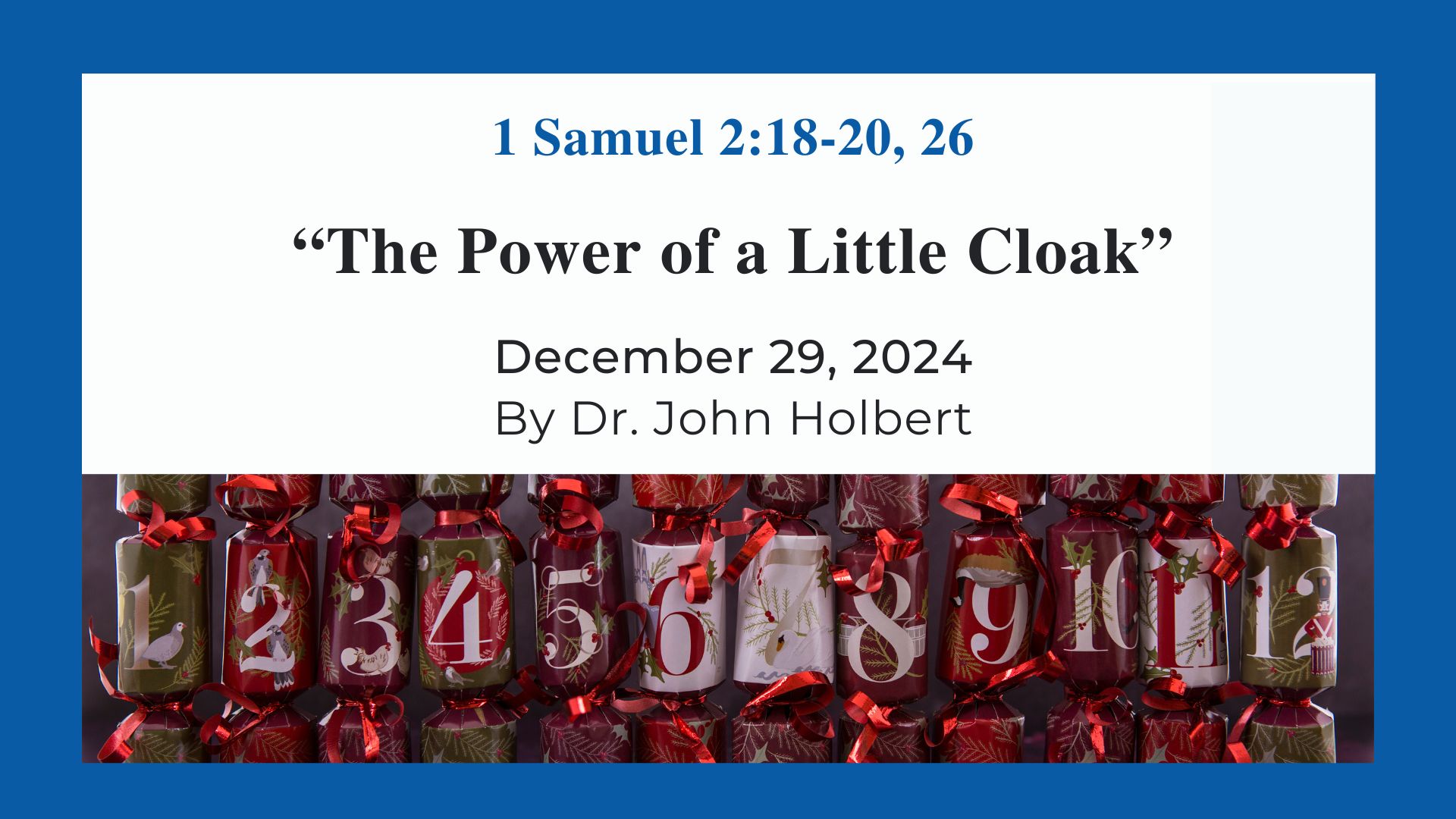The Power of a Little Cloak - Reflections on 1 Samuel 2:18-20, 26, Christmas 1, Year C
by John Holbert on Monday, December 2, 2024

How potent tiny elements of biblical narrative can be! This small piece of reticent story-telling offers an unexpected look at the deep maternal instinct demonstrated by Hannah for her absent son, Samuel. The Bible does not regularly allow us readers to gaze into the feelings of characters, preferring to show us what people do rather than to probe into their motivations, yet here is a parade example of actions that speak volumes about the heart of the actor.
The story’s context, as always, is crucial. Hannah was co-wife of Elkanah with Penninah, a fabulously fertile female, who gave her husband child after child in a dizzying array. At the same time, Hannah remained childless year after year. In deep desperation at the sanctuary of Shiloh, she prays fervently to YHWH for a son, and though the aged and clueless priest of the shrine, Eli, thinks she is a drunken fool, muttering her prayer quietly as she does, she tells him of her desire for a child. Eli brushes her off with a curt, “whatever,” (not exactly what the Hebrew says, but close) and the family returns home. This time, however, YHWH answers her and she becomes pregnant. What she did not reveal to anyone in her prayer is that she promised YHWH to “lend” the child to God’s service if she in fact was able to conceive. “If you give him to me, I will give him to you,” she says in profound simplicity.
Indeed, as soon as Samuel is weaned, she goes back to Shiloh to give him to Eli to mentor and raise up in the liturgical service of YHWH. The fact that she trusts the old man to do so is a sign of great confidence, though his earlier treatment of her offered little proof that Eli is any sense a trustworthy caretaker of a young child. And there is another problem, a huge drawback in Eli’s own family. His two sons, Hophni and Phineas, were terrible offspring, spending their days profaning the temple in flagrant abuse of sacrificial practices (1 Sam.2:13-18). Eli is such a poor father to these boys that he in the end loses his priesthood and is abandoned by YHWH (1 Sam.2:27-36). Nevertheless, Hannah has promised her son to YHWH, and she keeps her promise, leaving Samuel to the potentially disastrous control of Eli.
However, here is where our brilliant narrator includes a lovely and telling detail to the story. In sharp contrast to the evil actions of Eli’s sons, “Samuel was ministering (serving) in the presence of YHWH, a lad wearing a linen ephod” (1 Sam.2:18). We may conclude from a much later story from the books of Samuel, that grand tale of how King David danced before the ark of the covenant as it wound its way up toward his capital city of Jerusalem, “dressed (only) in a linen ephod” (2 Sam.6:15), that this ephod was obviously a very skimpy covering, since David’s estranged wife, Michal, observes her husband’s dance and accuses him of “exposing himself to the eyes of his servants’ slavegirls” (2 Sam.6:20). In short, the linen ephod left very little to the imagination of those observing anyone who happens to wear one! Samuel’s ephod is apparently a most inadequate garment for the chilly days of the Israelite highlands.
Hannah has something far better in mind. “A tiny cloak she made him and would bring it up to him year after year” when she came for the yearly sacrifice to Shiloh (1 Sam.2:19). In this delightful way, Hannah and her son could keep close connection as she brought a new cloak, slightly larger each year, to her minister son. Hannah clearly found a way to keep close to her boy while at the same time fulfilling her vow to offer him in divine service. Little wonder then, despite the obvious shortcomings of Eli, that “the lad Samuel was growing in goodness with both YHWH and with human beings” (1 Sam.2:26). Hannah, his dutiful mother, added immeasurably to his constant growth, offering the yearly cloak as a sign of her never-failing love for her child. In that little cloak, we see that mother love alive and active in the life of the boy who will eventually become leader, both priest and prophet, of an emerging Israel. There was in those regular cloaks genuine power, a living symbol of a love that was real. In what ways in our own lives can we see tiny details that speak of the power that sustains and supports us as we grow in our own attempts to witness to God’s power in and through us?
